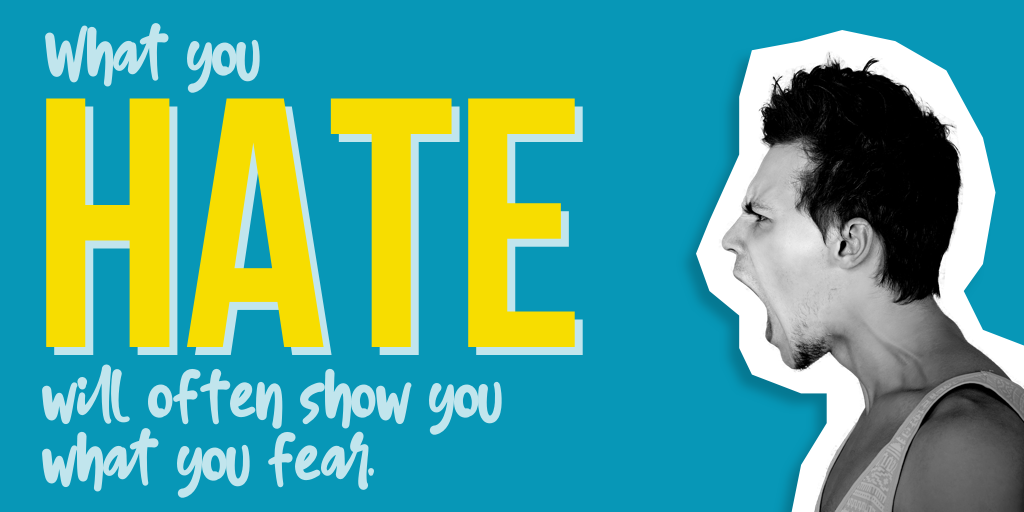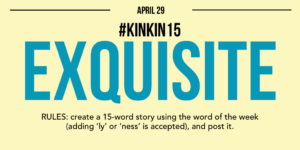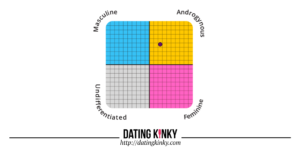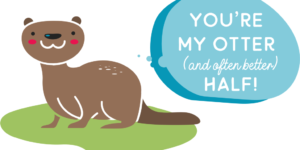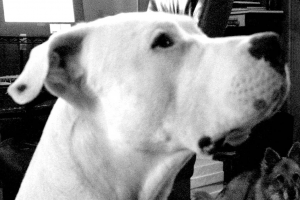It hurts to feel fear.
It makes us feel unsafe and vulnerable.
It makes us feel powerless.
It’s also slows our thoughts down and makes us less responsive to the world around us.
This is good and important for when we are trapped in negative conditions and need to carefully think our way out. Not so much in social situations or arguments with our partners.
Fear sucks.
But anger.
Oh man. Anger makes us feel POWERFUL.
I can see why anyone would choose to feel anger over any amount of fear or sadness.
Because anger makes us feel sharper, more able. A rush of adrenaline can give us a sense of strength and invulnerability. It reduces doubts and focuses us in on our target, narrowing our thousands of potential actions to a very few probable ones, which reduces anxiety of choice almost immediately.
More capable? ✅
Strength? ✅
Invulnerability? ✅
Reduced Anxiety? ✅
Yeah, I can see how anger is WAY more attractive than fear.
Anger can take a complex situation requiring nuanced thought and social skills and reduce it to something that needs to be beaten down or destroyed—killed, if you will.
One easy step to being happy. Or at least less afraid.
But anger is not sustainable long-term. It’s a sprint, not a marathon. For endurance, anger needs to shift to hate.
When whatever we are angry about isn’t resolved quickly, while we’re angry, we have two choices:
1️⃣ Go back to fear.
2️⃣ Shift to hate.
And frankly, going back to fear feels like giving up. Like losing. Hate, though, that feels like superiority and satisfaction. It’s easier to move into hate. It’s like a familiar friend and it simplifies the complexity of our world.
Fear? Feed it to the hate.
Sadness? Feed it to the hate.
Anxiety? Feed it to the hate.
And there’s the trap.
Creating a habit of hate drives others away, or at least others who are not willing to hate what we hate or who don’t hate as strongly as we do.
And then, we find ourselves feeling less connected, which opens most people up to more fear, sadness, and anxiety.
It’s a cycle:
Feel fear > Get angry > Kill it (metaphorically) and drive someone away
OR
Feel fear > Get angry > Get killed (metaphorically) and be driven away
OR
Feel fear > Get angry > No real resolution > Go back to fear (and start all over again) or shift into hate
Facing our fears is really the only way to move past them in a healthy way. To embrace them, to learn from them, and to learn to work through them, reduce them, or (possibly) end them.
Or, you know, we could just hate.
Some examples…
I’ve gotten some amazing feedback recently on the examples I give, so I thought I’d share a few here, to show how easily our love and friendships can turn to anger and hate thanks to fear.
How we poison ourselves and our loved ones over and over without even realizing.
I won’t go too deep into these, but I think a simple outline of some the most common arguments we have and how they can easily slide into this pattern will be enough.
smiles
Inadequate attention or affection.
FEAR: They don’t love me anymore. They don’t love me enough. They might leave me. I might be alone.
VULNERABILITY (me/I statements): I miss being touched by you. It hurts me the you reject my advances. I feel pain when you won’t hold my hand.
ANGER (accusations/blame/you statements): You don’t look at me like you used to. Why can’t you at least give me a hug? Am I disgusting to you? Is there something wrong with you? You’re cold.
HATE (resentment, lack of respect, thoughts which then lead to escalated anger): They never really meant it. They are just not a loving person. They are selfish. They are using me.
Chores and responsibilities.
FEAR: I can’t do all this myself. They aren’t doing what they said, maybe they don’t mean other things they said they would do. They might leave me. I might be alone.
VULNERABILITY: I counted on you to help me with this. I can’t do this all by myself. I’m overwhelmed and stressed. When things don’t get done, I feel anxiety. I feel like I can’t count on you when you don’t follow through.
ANGER: You never do what you promise. You lied about __. You’re lazy. You’re always avoiding work.
HATE: They are lazy. They let me do all the heavy lifting. They can’t be counted on. They are useless. They are a drag on me. I would be better off on my own and doing it all myself. They’ll never pull their fair share of weight around here.
A recurring issue.
This could be anything: leaving underwear on the floor, using too many dishes, filling the dishwasher the wrong way, spending money on frivolous things, forgetting to fill a prescription, flirting with others—especially when you’ve talked and they’ve said they would do better.
FEAR: They don’t care about my feelings. They can’t make this change. They are too different from me. They will leave if I push them.
VULNERABILITY: I am hurt when this thing happened, even when you said you would change. I would really like your help with this. I would love to feel like you care about this, because I do.
ANGER: You lied to me. You are abusive. You never do what you say you will. You ruined everything.
HATE: They do that on purpose to annoy me. They are willing to do or say anything to get their way. They are a liar. They will never grow and be a better person.
What are your thoughts?
Have you found yourself sliding into anger when you really felt fear or sadness or anxiety? Have you experienced others taking that step with you—being angry and combative, instead of being fearful and vulnerable?
Have you noticed the almost instantaneous effect it can have on a conversation and a relationship for one person to make that shift into anger or hate?
Can you come up with an example from your own past relationships of how fear becomes anger, and shifts into hate?


